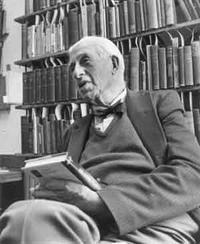Sykes, J. Egerton ‘Bill’ *
 J. Egerton ‘Bill’ Sykes (1894-1983) was born in London and served as a lieutenant during the First World War. He spoke several languages and as a Foreign Office official was able to travel widely and indulge his passion for studying ancient history. He was arguably the leading British Atlantologist of the 20th century and was ever the gentleman, but, in my opinion, somewhat gullible.
J. Egerton ‘Bill’ Sykes (1894-1983) was born in London and served as a lieutenant during the First World War. He spoke several languages and as a Foreign Office official was able to travel widely and indulge his passion for studying ancient history. He was arguably the leading British Atlantologist of the 20th century and was ever the gentleman, but, in my opinion, somewhat gullible.
Just before the war, Sykes was secretary to the British Legation in Warsaw. While there he built up a collection of hundreds of books relating to Atlantis. However, when the Germans invaded his library was seized by them(c).
Sykes founded the Atlantis Research Centre during World War II and was editor of Atlantis, a bi-monthly magazine that ran from 1948 until 1975. He also revised and edited a 1950 re-publication of Ignatius Donnelly’s Atlantis[0021].
He briefly published journals about radiesthesia and UFOs. Sykes had an interest in a number of other subjects, such as ley lines, having been at one time a member of the Old Straight Track Club. He has written a number of books on mythology[569][570][571].
Sykes postulated that Atlantis had begun around 18000 BC and had been a large island in the centre of the Atlantic with the Mid-Atlantic Ridge as a spine, of which the Azores are today its remnants(b). From there he believed that its cultural influence spread both east and west, with Atlantis providing a convenient ‘stepping-stone’ between the two. In 1950, Sykes organised a highly publicised expedition(d), with diving equipment and underwater cameras, seeking artefacts from Atlantis in the vicinity of the Azores.
Atlantisforschung has published a 1967 paper by Sykes supporting diffusionism with particular reference to pyramid building on both sides of the Atlantic(g).
He also believed that the Mediterranean had been divided into two large freshwater lakes created by two landbridges at Gibraltar and Sicily, although he does not seem to back up this idea with any evidence, even though Strato and Seneca refer to the breaching of a dam at Gibraltar.
He was of the opinion that Atlantis had been destroyed by some kind of extraterrestrial impact in the region of the Caribbean(f) and the Carolina coast. This idea led him to embrace some elements of Hans Hoerbiger’s controversial cosmological theories but was also open to considering variations on the impact theme such as that of Kamienski and others. Sykes also gathered worldwide myths and concluded that the biblical Deluge was concurrent with the flooding of Atlantis, around 11000 BC.
Sykes’ extensive library and papers, consisting of over 6,000 items, were purchased in 1979 by A.R.E., founded by Edgar Cayce. There is an official Egerton Sykes website that is worth studying(a) and where back issues of Sykes’ Atlantis magazine may be purchased.
In 1999, Venture Inward magazine published an article(e), The Making of an Atlantean Scholar, by Anne Ruby in which she gave an overview of Sykes’ life and his dedication to the subject of Atlantis. It ends with details of the sale of Sykes’ library to A.R.E. for “a down payment of $1,000 and $200 per month for nearly four years.”
(b) https://trove.nla.gov.au/ndp/del/article/18475823?searchTerm=Atlantis discovered&searchLimits=
(c) https://trove.nla.gov.au/ndp/del/article/42631006?searchTerm=Atlantis&searchLimits=l-availability=y
